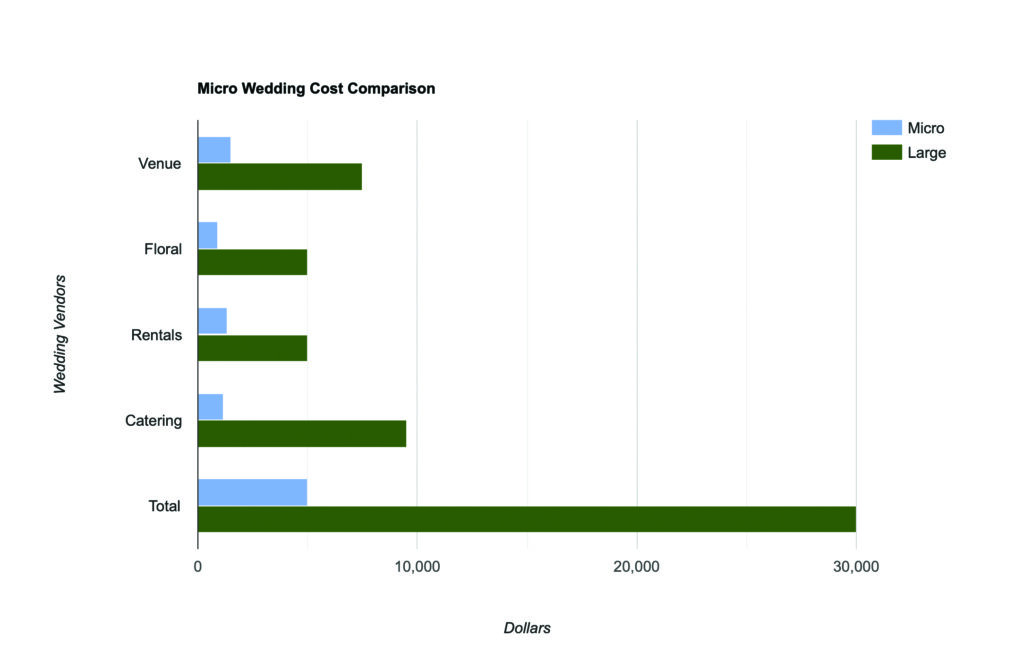Delicious ways to celebrate Valentine’s Day this year
Valentine’s Day is right around the corner, and whether you’re looking for a romantic evening out or would prefer to enjoy it in the comfort of your own home, there have perhaps never before been so many different ways to celebrate. Local restaurateurs and candymakers talk about how they’re approaching what’s normally a big day for business as the pandemic continues.
Meals for sweethearts
For co-owner and chef Matt Berry of Dahlia Restaurant, a series of New England-inspired farm-to-table pop-up dinners he presents with his wife Lauren at various local eateries, Valentine’s Day menus are among his favorites of the year to write.
“The vibe of being in a restaurant is already pretty intimate and it’s a special occasion to share with a partner,” Berry said. “I feel like people tend to be more adventurous eaters … so it’s a good time to try out some fun techniques and be creative with what you’re preparing.”
Since they launched the dinner series late last year, Berry said, he and his wife had been thinking about serving some type of Valentine’s Day dinner in collaboration with The Birch on Elm in Manchester. Eventually, he said, plans shifted from preparing for just one night to instead offering two seatings each across several evenings.
Starting Sunday, Feb. 7, and for select evenings through Thursday, Feb. 18, Dahlia Restaurant will serve a six-course Valentine’s Day menu with seatings at either 5 or 7:30 p.m. and optional wine or Champagne bottle pairings. Courses will include mushroom agnolotti with scallop, carrots and caviar; rib-eye, with cauliflower puree, carrots and potatoes; and a buttermilk panna cotta with strawberry preserves, thyme and an almond crumble. Attendees can inquire about the most up-to-date availability on reservations by emailing reserve@dahlianomadic.com.
“We figured we could still have that intimate restaurant atmosphere of being out for Valentine’s Day but also being as safe and clean as possible,” Berry said.
Other local restaurants, in response both to the pandemic and to Valentine’s Day falling on a Sunday this year, are offering multiple chances to celebrate over the course of several days. The Hills Restaurant at Hampshire Hills Athletic Club in Milford, for instance, will be running a five-course meal during business hours from Thursday, Feb. 11, through Saturday, Feb. 13, when you’ll be able to choose your own appetizer, soup or salad, entree and dessert option, according to executive chef Ben Cass. Similarly, Jamison’s Restaurant in Hampstead is running a specials menu all week leading up to Valentine’s Day, from Wednesday, Feb. 10, through Saturday, Feb. 13, during which a four-course prix fixe menu will be served.
In Hooksett, Roots Cafe & Catering at Robie’s Country Store has been closed since Christmas Eve but is due to reopen soon — just in time for a multi-course Valentine’s Day dinner menu that will be served on Saturday, Feb. 13, co-owner Amber Enright said. In addition to baby spinach salad and seared scallops with a parsnip puree and beet reduction, the meal will include one of two entree options (braised short ribs or citrus-marinated Cornish game hen) and chocolate cherry mousse for dessert. Champagne bottles will also be available.
“It’s going to be one seating at 6 p.m. for dine-in, but we’re going to offer the dinner for takeout as well,” Enright said. “People can pick it up between 4 and 6 p.m.”
Some spots are also going the brunch route for Valentine’s Day this year. The Grazing Room at the Colby Hill Inn in Henniker, chief innovation officer Jeff Brechbühl said, will serve a chocolate lover’s brunch on Sunday, Feb. 14, from 9 a.m. to 1 p.m., featuring chocolate integrated in different ways among various selections. A three-course prix fixe dinner menu will follow, with seatings between 4 and 8 p.m.
Madear’s Southern Eatery & Bakery in Pembroke, also hosting a Valentine’s Day brunch on Feb. 14, will serve various all-you-can-eat scratch-made Cajun options from 11 a.m. to 3 p.m., like chicken and red velvet waffles, banana-stuffed French toast, bourbon bread pudding, shrimp and grits, catfish nuggets and more. Unlimited mimosas and a bloody mary bar are also additional options. Madear’s will then end the day with a five-course plated dinner from 4:30 to 10 p.m.
Together at home
If you’d prefer to skip going out to a sit-down restaurant for Valentine’s Day, there are all kinds of opportunities courtesy of local businesses to help you mark the occasion at home.
The Bedford Village Inn, for example, in addition to serving a four-course prix fixe menu in its dining room on Feb. 14, is also offering a “Valentine’s Day Takeaway” take-home meal kit this year, featuring an appetizer, an entree, various accompaniments, a dessert and optional wine or Champagne pairings, all chosen from a select menu and packaged with cooking instructions, house-made breads and Vermont butter. Highlights of the menu include a local artisan cheese board, filet mignon or grass-fed lamb with a red wine demi-glace, and a “sweetheart chocolate bag,” which features white chocolate and strawberry mousses, strawberries, red velvet cake, strawberry coulis and chocolate sauce. Orders are being accepted through Feb. 7, and pickups will be on Feb. 12 and Feb. 13.
“It’s a beautiful, elegant menu, and really a nice one-stop shop for Valentine’s Day,” Bedford Village Inn sales and marketing director Melissa Samaras said.
Several participating locations of The Common Man Family of Restaurants have also introduced unique takeout menus for Valentine’s Day, dubbed the “Sweetheart Suppers To Go.” Meals are sold per couple and include three courses with heating instructions, as well as half-priced wines and chocolate-covered strawberries as optional add-ons.
Common Man chief executive officer Vincent Vella said the concept continues the success that each of the company’s restaurants have experienced over the last several months, following similar programs that were rolled out for Thanksgiving and Christmas.
“You get a crab and spinach artichoke dip as an appetizer, and then petite filet and lobster tail dinner, and a white chocolate mousse dessert,” Vella said.
He said orders are being accepted at each participating restaurant through Feb. 7, with pickups the day before Valentine’s Day.
New England’s Tap House Grille in Hooksett, which in previous years has served a Sunday brunch buffet for Valentine’s Day, is converting its offerings into a “brunch to go” menu this year, according to marketing director Nancy Comai. Options like house frittata, mini pancakes, croissants, and mimosa or bloody mary baskets are available for pre-ordering now through Feb. 10, to be picked up the morning of Feb. 14.
At The Inside Scoop in Bedford, orders for Valentine’s Day ice cream pies are being accepted now through Feb. 10, featuring various flavors of ice cream, all with a homemade Oreo crust.
In Wilton, Copper Kettle To Go is getting creative by offering its own “date boxes” that can be ordered in advance online and picked up at the restaurant. Each box includes either a bottle of Champagne or a four-pack of craft beer, plus heart-shaped ravioli presses, pasta sauce, Italian ricotta and all the other ingredients you need to make the pasta, minus the eggs. To tie it all together, each box holder will also be given access to a pre-recorded video tutorial of Copper Kettle owners and husband-and-wife team Chris and Megan Gordon walking them through the ravioli-making process.
“We figured it would be a fun way to interact with our customers, and for them to see that Chris and I are married and that it’s a family business,” Megan Gordon said. Also included in the boxes are two vanilla cupcakes spiked with strawberries and cream liqueur for dessert.
Sweet indulgences
Local candy and chocolate shops across the Granite State are preparing for Valentine’s Day too, all while promoting early shopping, curbside pickup and online ordering this year.
For Van Otis Chocolates in Manchester, Feb. 14 falls right in the middle of the downtown shop’s busiest time of year, which is typically between Christmas Day and Easter, according to marketing manager Shauna McIntosh. Van Otis is once again offering customizable chocolate gift boxes, multiple flavors of chocolate-dipped strawberries and chocolate-dipped Champagne bottles, in addition to a few new items like Swiss fudge hearts. For a limited time, McIntosh said, the shop is also bringing back its strawberry jam Swiss fudge.
Granite State Candy Shoppe in Manchester and Concord is providing curbside pickup six days a week, with a 24-hour advance notice for items. Assorted chocolate heart boxes are available, including those that are made out of chocolate, as well as chocolate-dipped strawberries and other various Valentine-themed candies and chocolates. Owner Jeff Bart said both locations are expected to be open extended hours all Valentine’s Day weekend.
“We have a much better and more robust online ordering system … and we very much encourage people to shop online,” Bart said.
Nelson’s Candy & Music in Wilton, according to owner Nancy Feraco, is similarly adjusting its normal Sunday hours of noon to 5 p.m. to 10 a.m. to 6 p.m. on Feb. 14. Its heart-shaped boxes made out of chocolate and filled with various flavors of chocolate-dipped strawberries, were a huge hit last Valentine’s Day and will be making a return this year.
The shop has been experimenting with other kinds of chocolate molds, like solid chocolate dinosaurs holding tiny chocolate hearts, chocolate-covered marshmallow penguins holding hearts, and chocolate mold pianos filled with brandy-soaked cherry cordials.
“We used to do live music but we really haven’t been able to lately,” Feraco said, “so we’ve been doing quite a few musical molds instead.”
The Candy Kingdom on Harvard Street in Manchester is also asking customers to call ahead for either in-store or curbside pickup. Items for sale include assorted heart-shaped chocolate boxes, chocolate heart boxes and the shop’s popular chocolate-dipped strawberries and tuxedo berries.
“We generally dip [the strawberries] one hour before their scheduled pickup time,” Candy Kingdom co-owner Phyllis Capers said in an email. “This year, we will be dipping them throughout both days [Saturday and Sunday] so we don’t have people lingering in the store.”
More ways to celebrate Valentine’s Day
From gifting sweet treats to your significant other to enjoying a romantic night out for two, be sure to check out our annual dine-in and takeout listings for Valentine’s Day at local restaurants, candy shops, bakeries and more. They’ll go live online at hippopress.com beginning Jan. 28, available to everyone, thanks to our members and supporters.
Featured photo: A box of chocolates from Granite State Candy Shoppe. Courtesy photo.








